Share the Lore!
By: Sid Meyers
The Connection Between Spirits and Dreams in Various Cultures
Remember that dream that completely baffled you and led you down mental rabbit holes trying to determine what it meant?
Dreams have always been a mysterious aspect of human experience. They are visual stories that take place in our minds while we sleep. Spirits, on the other hand, are entities that possibly exist beyond the physical realm.
They can be seen as a form of energy or presence that is not necessarily limited by the boundaries of our world. The connection between spirits and dreams has been recognized across various cultures since ancient times.
Many believe that spirits can enter our dreams to communicate with us or provide guidance. Dreams, therefore, are seen as a way for spirits to connect with us in a way that may not be possible during our waking hours.
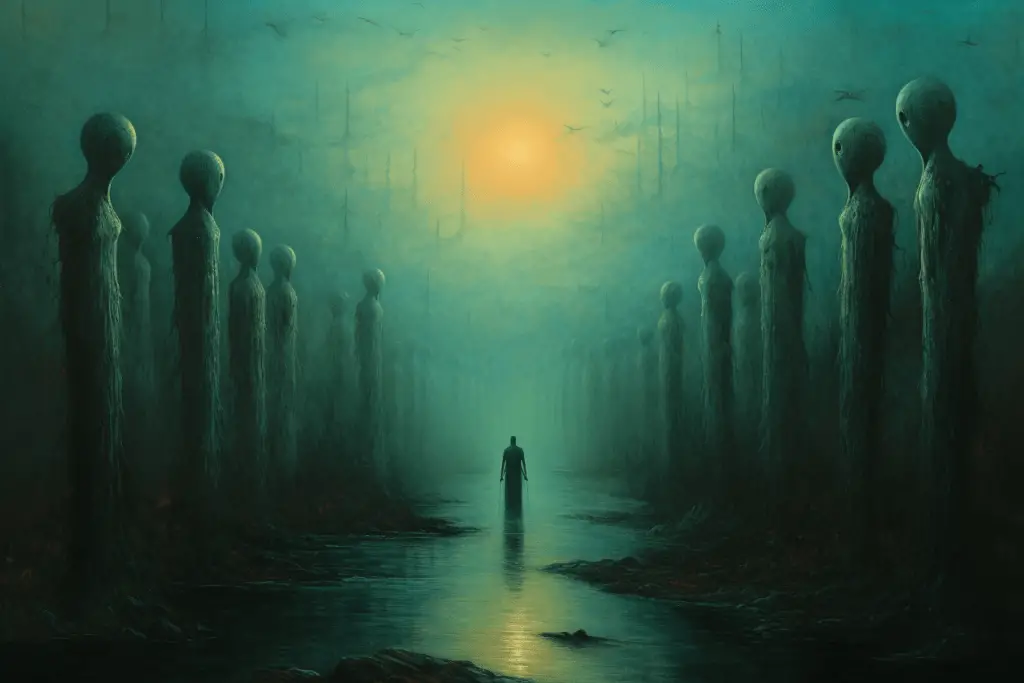
Understanding this connection between spirits and dreams is essential for appreciating various cultural beliefs and practices related to spirituality and the afterlife. From ancient Egypt to Native American culture to Japanese traditions, there is a rich history of people believing in the spiritual significance of their dreams.
The Importance of Understanding Cultural Differences
Cultural differences play an important role in how people interpret their dreams and experiences with spirits. For example, ancient Egyptians believed that dreaming was a way for their gods and goddesses to communicate with them directly.
In contrast, Native Americans saw dreamcatchers as a way to filter out negative spirits trying to enter their dreams.
By understanding these cultural differences, we can learn more about how different communities view spirituality and belief systems related to life after death.
This knowledge can help us appreciate diverse perspectives on spiritual matters. Furthermore, studying different cultures’ beliefs about spirits and dreams also provides insight into human psychology and how we find meaning in life’s mysteries.
Whether you believe in specific spiritual practices or not, exploring these topics broadens your understanding of the human experience as a whole. In this article, we will explore some examples from different cultures about how spirits and dreams intersect.
Fun Fact: Lucid Dreaming: Lucid dreaming is a state in which a person becomes aware that they are dreaming while still in the dream. It allows them to have some level of control over the dream's events and actions.
The Spiritual Significance of Dreams in Ancient Egypt
The ancient Egyptians believed that dreams were more than just random thoughts and images. They saw them as a way for the spirits to communicate with them.
In fact, they thought that the spirits could enter their dreams and reveal important messages or warnings. Dreams played a crucial role in ancient Egyptian culture as they were seen as a way to connect with their gods and goddesses.
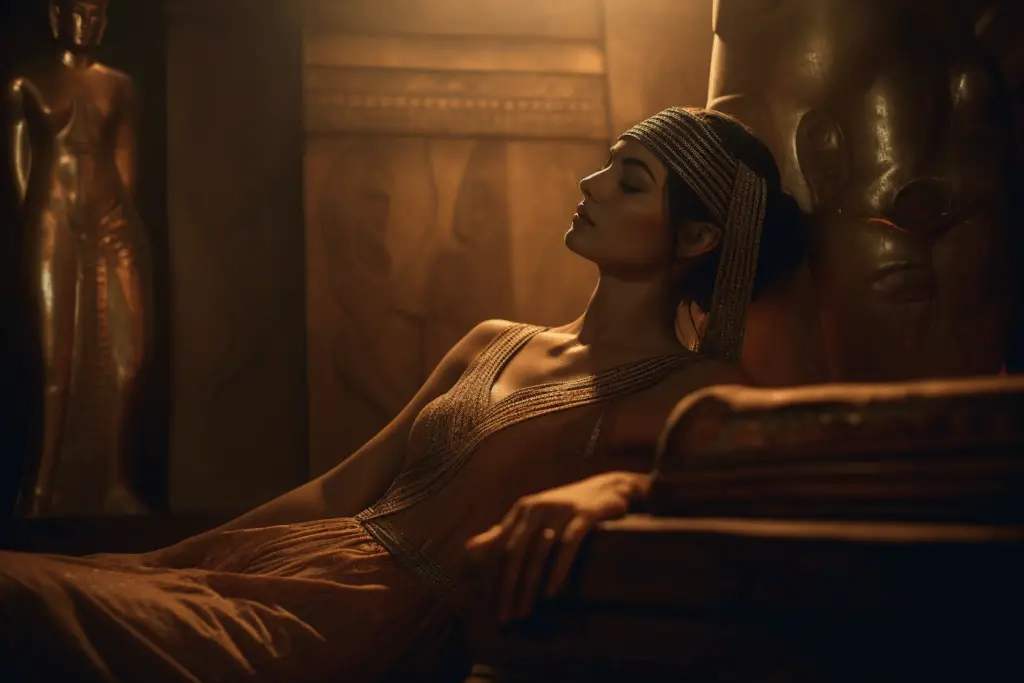
The Egyptians believed that their gods would appear to them in their dreams, offering guidance or presenting challenges that needed solving. For example, if someone had a dream about being chased by a lion, it was seen as a sign from the gods that they needed to be more courageous or assertive in their waking life.
Dream Interpretation: Unlocking the Secrets of Ancient Egyptian Culture
Dream interpretation was an essential part of ancient Egyptian culture. They believed that by interpreting dreams, they could gain insight into what was happening in their lives and receive guidance from their higher powers.
The Egyptians had an entire system for interpreting dreams called “dream books.” These books contained lists of symbols and what they meant when appearing in dreams. For example, dreaming about crocodiles represented danger while dreaming about snakes represented healing.
Priests were often responsible for interpreting these symbols when people had significant or recurring dreams. They would help people understand the messages sent by their gods through these vivid visions.
Ancient Egyptians believed that spirits could communicate with them through dreams and saw dream interpretation as essential for connecting with their deities. Through this practice, they found guidance on how to live better lives and solve difficult problems they faced.
Spirits and Dreams in Native American Culture
Native Americans believe that dreams are a very important part of their spiritual lives. In ancient times, they believed that spirits could enter their dreams to provide guidance or warnings. Dreaming was considered a sacred event because it was believed to connect them with the spirit world.
Therefore, the interpretation of dreams was a vital part of Native American culture. Dreams were not only seen as a communication tool between the living and the spirit world but also as a way for individuals to gain insight into their own lives.
They believed that through dreams, they could discover their purpose in life, find healing, and gain wisdom from their ancestors and spirit guides. Dreaming was considered an important part of healing ceremonies and vision quests which were often taken by young initiates seeking direction.
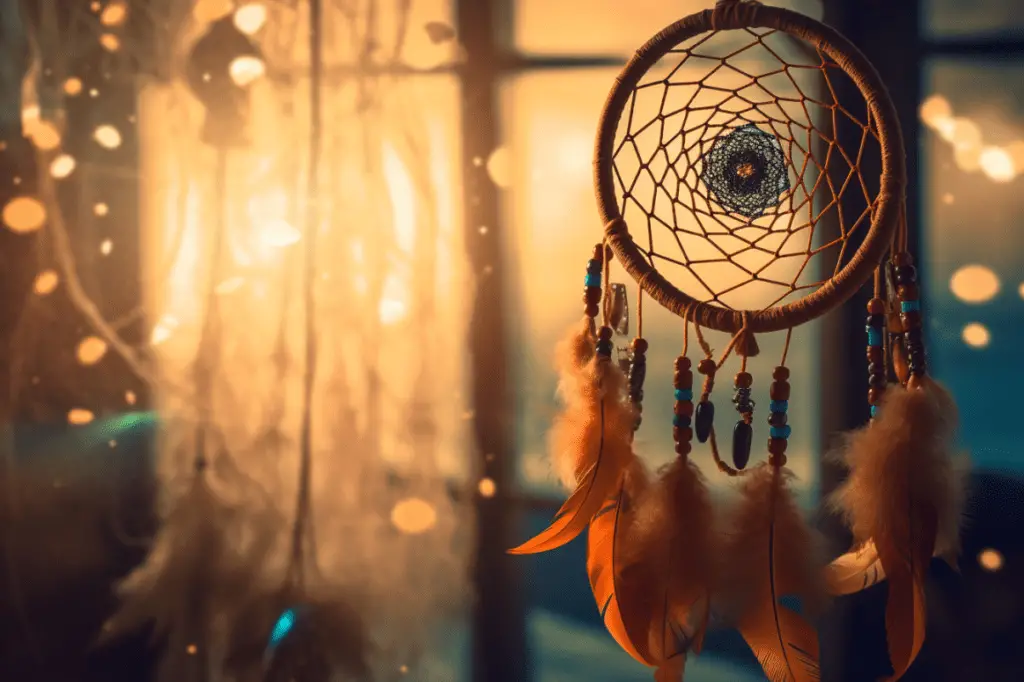
The Role of Dreamcatchers
Dreamcatchers are one of the most well-known symbols associated with Native American culture. They are widely used today as decorations or souvenirs but originally had a very specific spiritual purpose connected to dreaming. According to legend, dreamcatchers were made by grandmothers for newborn babies to protect them from bad dreams or nightmares.
The web-like structure was meant to catch bad dreams while allowing good ones to pass through. The feathers attached to the bottom were meant to guide good dreams down into the sleeper’s mind.
The use of dreamcatchers eventually expanded beyond protecting infants to include all members of the community who wished for peaceful and positive dreams. Today, dreamcatchers continue to be used by some Native Americans as well as non-Native people who appreciate their symbolism and beauty.
Fun Fact: Dream Temporal Distortion: Dreams can create a distorted sense of time. While dreams typically last a few minutes to half an hour, some people have reported experiencing dreams that feel like they lasted for hours or even days.
Spirits and Dreams in Japanese Culture
Japanese culture has a long history of beliefs about spirits entering dreams. One of the most famous types of supernatural creatures is the yokai.
Yokai: Supernatural Creatures that Visit in Dreams
Yokai are said to visit people in their dreams and bring good or bad luck. These creatures can take on many forms, from mischievous little sprites to terrifying monsters that can shape-shift into human form.
One common belief is that if you dream about a red snake, it means that a yokai has visited you. Depending on the type of yokai, this could be a good or bad omen.
For example, some yokai are benevolent and may bring good fortune or protection to the dreamer. Other yokai are more malevolent and may bring harm or misfortune.
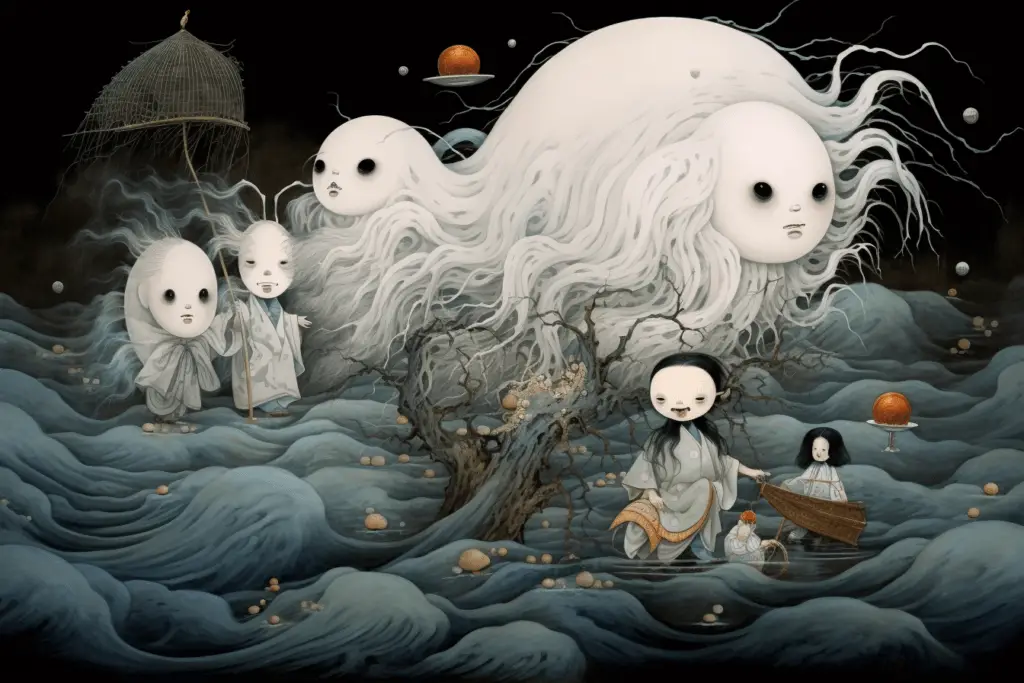
Obon Festival: Honoring Ancestors through Dreams
Japanese culture also has many traditions around honoring ancestors who have passed away. One such tradition is the Obon festival, which takes place in mid-August every year. During this time, it is believed that the spirits of ancestors return to visit their living descendants.
One way that Japanese people honor their ancestors during Obon is by leaving out food offerings on altars called butsudans. These offerings are meant to sustain the spirits during their journey back to the afterlife.
Another way that Japanese people honor their ancestors during Obon is by performing rituals like dances and songs called Bon Odori. It is believed that these dances allow living descendants to connect with their deceased loved ones and even receive messages from them through dreams.
Overall, Japanese culture has a rich history of beliefs around spirits entering dreams. From supernatural creatures like yokai to honoring ancestors through festivals like Obon, dreaming has been seen as an important way to connect with the spiritual realm.
While some of these beliefs may seem strange or unfamiliar to outsiders, they offer a unique window into the rich tapestry of Japanese culture.
Fun Fact: Dream Amnesia: It's estimated that about 95% of dreams are forgotten within minutes of waking up. This phenomenon is known as dream amnesia and explains why we struggle to recall our dreams.
The Scientific Explanation for Spirits and Dreams
Why do we dream?
People from all cultures have come up with various beliefs and explanations about why we dream. From the ancient Egyptians to the modern-day neuroscientists, many have tried to unravel the mystery of what happens in our minds when we sleep. Today, scientists believe that there are multiple factors that contribute to why we dream.
One reason is that dreaming helps us consolidate memories. During sleep, our brains process and organize information from the day before, which can lead to creative problem-solving and new insights.
Dreams also allow us to experience emotions in a safe space; by processing difficult feelings in our dreams, we may be better equipped to handle them in real life. Another theory is that dreaming helps us practice social interactions and prepare for potential threats.
Dreams might enable us to rehearse different scenarios and develop strategies for dealing with challenging situations. Overall, while the exact purpose of dreams remains a mystery, it’s clear that they serve important functions in our mental health and well-being.
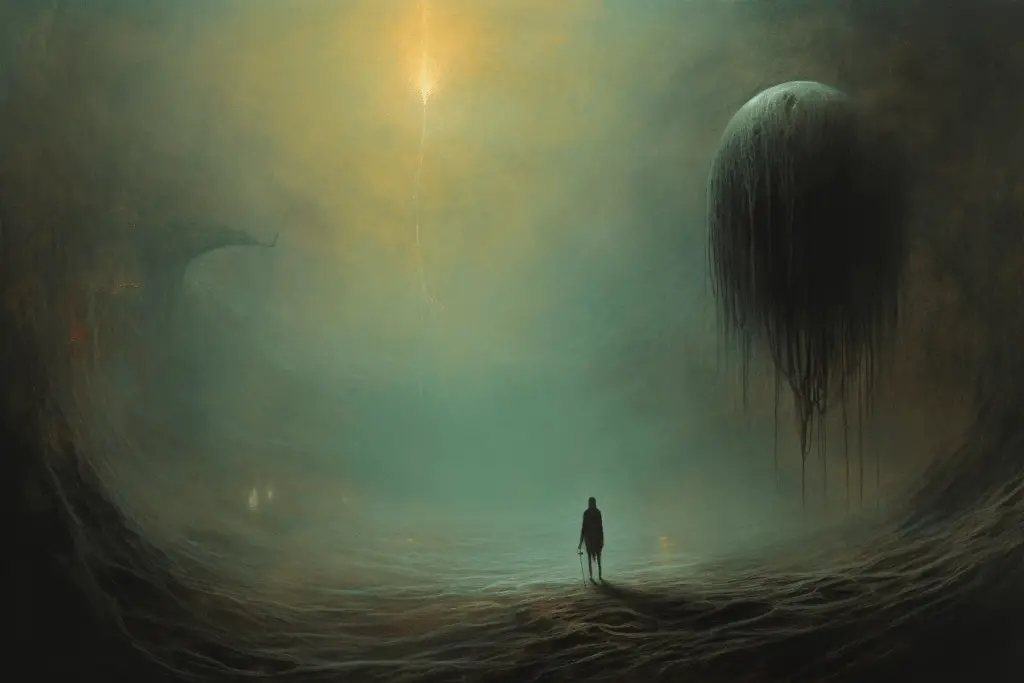
Spirits entering dreams: Is there scientific evidence?
While many cultures believe that spirits can enter our dreams as a way of communicating or guiding us, there is no scientific evidence to support this claim. However, there are some interesting parallels between spiritual beliefs and certain aspects of neuroscience.
For example, some theories suggest that dreaming occurs when the brain tries to make sense of random neural activity during sleep. This could explain why dreams often seem strange or surreal – they’re simply a result of our brains trying to create meaning out of chaos.
Similarly, studies have shown that people who report having more vivid or meaningful dreams tend to be more creative and imaginative in waking life. This suggests that dreaming could play a role in fostering creativity and innovation.
Overall, while there is no scientific proof that spirits can enter our dreams, research into the neuroscience of dreaming continues to uncover fascinating insights into the workings of the human mind. Who knows what new discoveries might be made in the future?
Fun Fact: Dream Incorporation: Dreams can often incorporate real-life sounds, sensations, and experiences into the dream narrative. For example, if a phone rings while you're asleep, it may be incorporated into your dream as a doorbell or alarm.
Conclusion
After exploring the beliefs and practices surrounding spirits and dreams in ancient Egyptian, Native American, and Japanese cultures, it is clear that the connection between these two concepts is significant and deeply rooted in many cultures around the world.
Through dream interpretation, rituals, and artifacts like dreamcatchers, individuals have sought to connect with their gods, ancestors, and spirits for centuries. Understanding cultural differences is crucial when it comes to appreciating the significance of spirits and dreams.
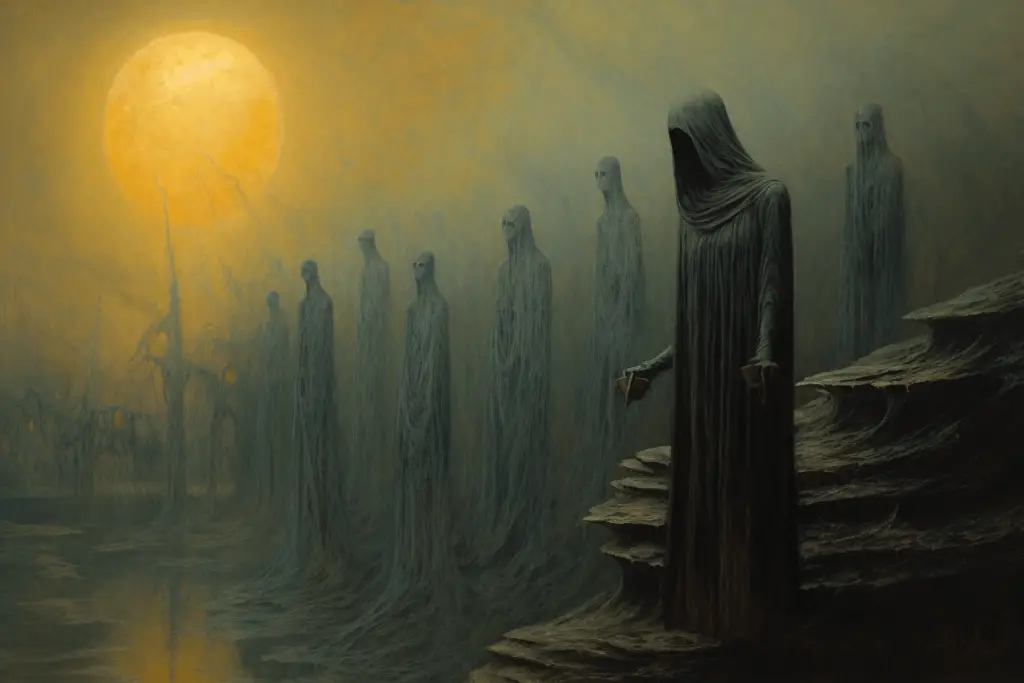
Each culture has its own unique beliefs about the spirit world and how it interacts with our dreams. By learning about these beliefs, we can gain a deeper understanding of their traditions and values.
We can also learn to appreciate the diversity of human experiences across the globe. Moreover, learning about different cultural perspectives on spirits and dreams can offer us profound insights into our own lives.
Dreams are a universal human experience; by exploring how they are interpreted across cultures we can gain new insights into our own psyche. We may find that we too are seeking guidance from spirits or ancestors through our dreams – even if we approach this quest in a different way than others might.
Whether you believe in spirits or not does matter – what’s important is recognizing that there is something inherently mysterious about dreaming that fascinates humans across all cultures. By studying how different people approach this mystery we not only broaden our horizons but enrich our own lives as well.

